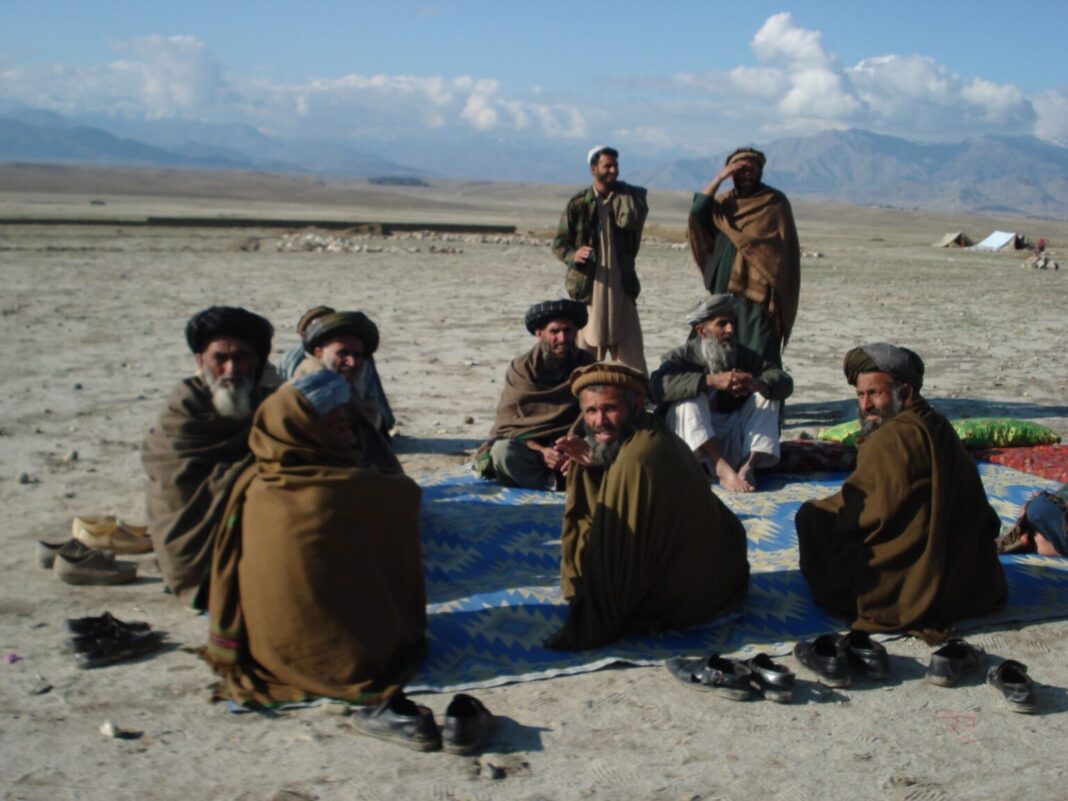By Ilhamuddin Afghan*
For hundreds of years, Afghanistan’s traditional Jirga system served as the main forum for dispute resolution. On August 15, 2021, the Taliban overran Afghanistan, and since then, the Jirga system has undergone significant changes. The Jirga system facilitates swift dispute resolution and is generally fair, but the Taliban’s involvement has raised questions about their ability to dominate political, military, and civilian issues.
The Jirga is still in place under Taliban rule, but the power of the village and local leaders has been greatly diminished. Instead, the votes of the Mullahs are given more weight in all decisions, and the Jirga is under tighter supervision. Additionally, the Taliban has created sizable commissions to address crucial national issues, demonstrating their desire to rule over every facet of Afghan society. Although it has flaws, Afghanistan’s Jirga System has been effective in resolving disputes between tribes and ethnic groups. But the Taliban’s involvement has drawn criticism and raised questions about whether they intend to use the Jirgas to continue to rule over Afghan society.
Overall, Afghanistan’s traditional Jirga system continues to play a significant role in the history and culture of the nation. However, under the Taliban rule, its effectiveness and future are still up in the air.
In eastern Afghanistan, a tribal elder named Alam Khan argued that Jirga plays a significant role and that the decisions it makes are resolute. Conflicts are frequently settled amicably by tribal leaders, who are trusted by both parties involved. This contrasts with the slow decision-making process used by the government, which can take years to settle disputes. In one instance, according to Khan, a land dispute that had caused casualties and lasted 13 years was settled in a month.
Another anonymous tribal elder told the author that tribal and local leaders can make decisions that Mullahs cannot because they have a better understanding of the situation. Mullas may be familiar with Sharia law, but the Jirga process relies on consent and calls for an understanding of how to foster better relationships between opposing sides.
Under Taliban rule, the group’s viewpoints are accepted in every aspect of life, and most disputes now go through legal channels before being brought before Jirgas. Large commissions have also been established by the Taliban to handle domestic issues.
Serajuddin Haqqani, the Taliban’s acting interior minister, recently met with tribal chiefs from the Southeast provinces to discuss a commission he set up to settle disputes. In several provinces, including Paktia, Khost, Paktika, and Logar, the commission is attempting to put an end to tribal disputes. Through the creation of commissions that resolve ethnic disputes in accordance with their preferences, the Taliban appears to be in charge of all political and military issues in Afghanistan, including civilian ones. This is particularly true in Afghanistan’s Southern, Eastern, and Southeastern regions, where ethnic conflicts are more common because of things like unemployment, poverty, and a lack of educational opportunities.
Tribal elders have previously come under fire for accepting bribes from opposing parties during Jirgas, but the criticism has gotten worse now that Mullahs are involved. The tribal elders contributed some of their resources, such as the Jirga site, but the Taliban do not; instead, they impose their rule through violence.
Jirgas provided the necessary checks and balances against the ruling establishment, pressuring them from taking any extreme steps. Even during the recent authoritative action by the Taliban for a ban on women’s education, a Jirga organized in the Paktia province of Afghanistan has threatened the Taliban of dire consequences if the schools for girls above sixth grade are not opened at the earliest. Jirgas, which shares the same history as Pashtuns, remained an important element of local-rural governance in Afghanistan. This is not going to be the same under the Taliban. By challenging the Taliban on various decisions, Jirgas pose a threat to the authority of the Taliban and hence Taliban would try all means to keep Jirgas divided, weakened, and not relevant.
*Author chooses pseudonym.
afghandiaspora.net

